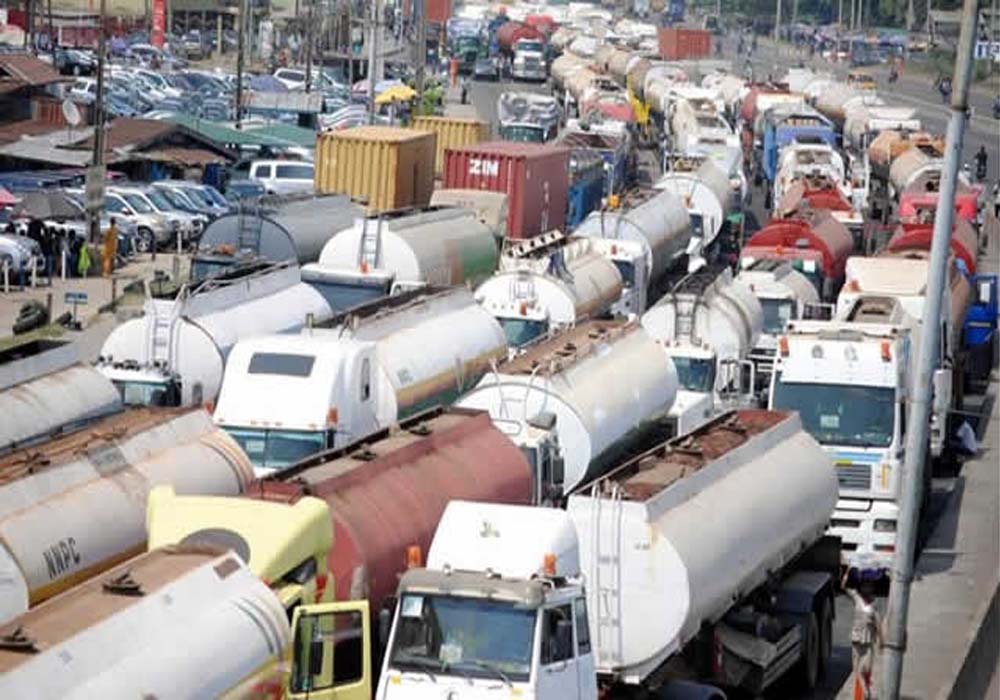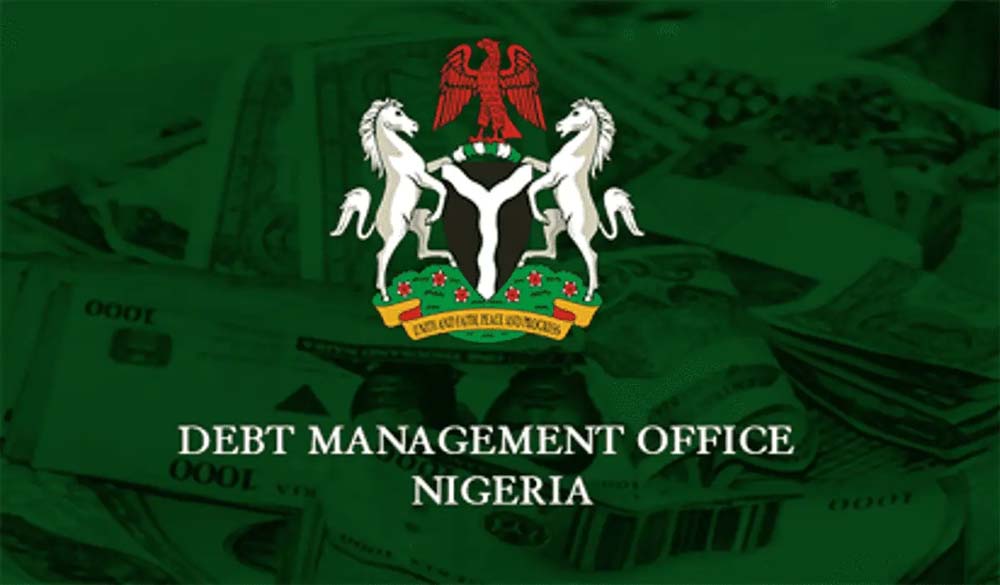Business
‘How Julius Berger is Fueling Hardship, Inflation’

By Edozie Obasi-Eze
Commuters and residents around the Ogun -Lagos State end of the Lagos-Ibadan expressway have decried the continuous occupation of the road by Julius Berger in the name of reconstructing it.
A good number of people who spoke to Biztellers lamented that a journey from Mowe-Ibafon-Magboro axis of Ogun State to Berger-Alausa axis of Lagos State that would ordinarily take about 10 to 15 minutes has been taking several hours, which has led to skyrocketing of transportation fares, fueling inflation in the process.
A banker, Buntu Odiga, expressed sadness that “this whole occupation of the road by Julius Berger is fueling inflation and hardship.”
According to him, the journey from “the area often referred to as new Lagos (Mowe-Ibafon-Magboro) used to take minutes before Julius Berger moved in. Since they effectively occupied the area, the journey now takes up to an average of four or five hours.”
Read also>>>Tragedy as man kills brother while testing bulletproof charm
In an attempt at counting the economic costs, Odiga said, “the cost would be difficult to compute. But what is clear to all is that people used to pay N200 for the journey from new Lagos to Berger-Alausa, but now they are paying as much as N500 for bus and upwards of N1,000 for motorbikes.
“You can figure out what impact this is having on the health and well-being of the people. And given that food items and other commodities for everyday living have to be transported at astronomical costs between these locations, the consumers must bear the brunt of these. That is why the cost of everything in this part of town has through the roof.”
He maintained that it was up to the Federal Government to use the relevant agencies to measure the rate of hardship and inflation being occasioned by the road rehabilitation to aid planning and execution of this and future projects.
“There must be a way to clearly measure the economic costs. And that rests with the government,” he added.
He revealed that his strategy of beating the traffic was leaving home at 2am to “crawl through to the office.”
According to him, government cannot feign ignorance that the people are passing through tough times while productivity is totally shattered.
Another resident, a teacher, Okoh Bamjoko, told Biztellers that at the moment, she could only afford to spend weekends at her home in Magboro.
“Since Julius Berger occupied the road,” she started, “the twin forces of heavy traffic and cost of commuting have combined to serve me a quit notice from the house I borrowed money to build.”
Her way of navigating through the nightmare has been to go to work every Monday and stay with her sister for the weekdays.
She has resorted to returning to her home only on Fridays to spend the weekend.
This is the lot of many commuters and residents in the area, most of whom decry being forced to literally live on the road, because commuting to and from work has been taking upwards of 10 hours daily, which wears and tears the body and the pocket.
With up to 10 hours of one’s day spent on the road, how many are left for productive activities and the necessary rest (sleep) to recover for the next day’s activities, they ask?
Business
FG Reiterates Commitment To Utilise Gas For Economic Growth, Prosperity

. . . Tinubu Lauds NNPC Ltd, Partners Over Three Commissioned Gas Projects
In line with its renewed hope agenda, the Federal Government has reiterated determination to utilize Nigeria’s abundant gas resources towards revamping her industrial growth and kick-starting economic prosperity.
Biztellers reports that President Bola Ahmed Tinubu made the assertion while commissioning three critical gas infrastructure projects executed by the NNPC Limited and its partners in Ohaji-Egbema, in Imo State and Kwale, in Delta States, on Wednesday.
The three projects commissioned include the expansion of the AHL Gas Processing Plant, the ANOH Gas Processing Plant and the 23.3km ANOH to Obiafu-Obrikom-Oben (OB3) Custody Transfer Metering Station Gas Pipeline Projects.
He said, “It is pleasing that approximately, 500MMscf of gas in aggregate would be supplied to the domestic market from these two Gas Processing Plants, which represents over 25% incremental growth in gas supply.
“In practical terms, this translates into more gas to the Power Sector, Gas-Based Industries, and other critical segments of the economy.”
The President pointed out that from the onset, his administration was clear of its intention to leverage on the virtually unlimited capacity of gas to deepen domestic gas utilization, increase national power generation capacity, revitalize industries, and create multiple job opportunities for economic growth.
He said aside the Presidential Compressed Natural Gas (CNG) Initiative which is aimed at moving Nigerians away from petrol and diesel as vehicular combustion fuel, significant progress has also been recorded in incentivizing gas development through Presidential Executive Orders.
While congratulating the projects partners (NNPC Limited, Sterling Oil Exploration & Energy Production Company Limited (SEEPCO) and Seplat Energy for the successful implementation of the three projects, Tinubu particularly charged the NNPC Limited to, as the national energy company of choice, sustain its relentless efforts and record more successes in the energy sector for the benefit of all Nigerians.
President Tinubu described the commissioning as a highly significant milestone for Nigeria as it demonstrates his administration’s efforts to accelerate the development of critical gas infrastructure geared at enhancing the supply of energy to boost industrial growth and create employment opportunities.
He said the projects were fully in line with the Federal Government’s Decade of Gas initiative, and his administration’s quest to grow value from the Nation’s abundant gas assets while concurrently eliminating gas flaring and accelerating industrialization.
“I wish to assure the citizenry that these are just the beginning, as the federal government is stepping up its coordination of other landmark projects and initiatives that will ensure the earliest realization of gas fueled prosperity in our country.
“Consequently, I wish to assure investors in the energy space that this is an investment enabling government and we will not relent in facilitating the ease of doing business,” the President noted.
Earlier in his address, the Minister of State for Petroleum Resources (Gas) Rt. Hon. Ekperikpe Ekpo highlighted the efforts of his ministry to continue to champion the utilisation of gas as a transition fuel as Nigeria moves towards achieving clean energy efficiency and security by 2060.
Ekpo commended the President for his leadership and support towards the success of the three projects.
In his remarks, the GCEO NNPC, Mele Kyari described the commissioning as a demonstration of Mr. President’s commitment and support to grow the domestic utilization of natural gas for power generation, as feedstock for gas-based industries and overall rapid industrialization of Nigeria on the back of the enormous gas resources in the country.
Kyari assured that as part of its mandate, NNPC Ltd remains committed to maintaining energy security by executing more strategic gas projects for the benefit of Nigeria.
Business
FG Lists N4.214bn April Savings Bonds On NGX

The Nigerian Government has listed her April 2024 Savings Bonds worth N4.214 billion on the Nigerian Exchange Limited (NGX) platform.
This was disclosed in the market bulletin signed by the Head, Issuers Regulation Department of NGX, Godstime Iwenekhai.
According to the bulletin, “Trading License Holders are hereby notified that the April 2024 Issue of the Federal Government of Nigeria (FGN) Savings Bonds was listed on Nigerian Exchange Limited (NGX) on May 13, 2024.”
Details of the Bonds include FGS April 2026, 1.228 million units valued at N1.228 billion at a coupon rate of 17.046%, while FGS April 2027, 2.986 million units amounted to N2.986 billion at a coupon rate of 18.046%.
The bonds are backed by the full faith and credit of the FGN and charged upon the general assets of Nigeria, according to the debt office.
FGN Savings Bond is issued monthly in tenors of two and three years with quarterly payment of coupons (interest) at a rate predetermined and published by the DMO every month.
The retail savings bond product was introduced by the DMO on behalf of the FGN in 2017 to democratise its activities in the bond market by making it easily accessible to Nigerians to ensure continuous development of the domestic market and bridge infrastructure deficit which has been a constraint to economic growth.
Business
JUST IN: Nigeria’s Inflation Soars To 33.69%
Nigeria’s inflation rate surged to 33.69% in April 2024, up from 33.20% in March, according to the latest data from the National Bureau of Statistics (NBS).
The Consumer Price Index (CPI) report, released Wednesday, shows a 0.49 percentage point rise within a month.
Year-on-year, the inflation rate has surged by 11.47 percentage points, compared to 22.22% in April 2023, highlighting the ongoing economic challenges and rising costs for consumers.
The report reads “In April 2024, the headline inflation rate increased to 33.69% relative to the March 2024 head line inflation rate which was 33.20%.
“On a year-on-year basis, the headline inflation rate was 11.47% points higher compared to the rate recorded in April 2023, which was 22.22%.
This shows that the headline inflation rate (year-on-year basis) increased in the month of April 2024 when compared to the same month in the preceding year (i.e., April 2023).
“Furthermore, on a month-on-month basis, the headline inflation rate in April 2024 was 2.29%, which was 0.73% lower than the rate recorded in March 2024 (3.02%).
“This means that in the month of April 2024, the rate of increase in the average price level is less than the rate of in crease in the average price level in March 2024.”
Prices of food and basic commodities have surged dramatically in recent weeks, as Nigerians grapple with a soaring cost of living and one of the nation’s most severe economic crises.
The crisis has been intensified by the government’s removal of petrol subsidies and the unification of forex windows.
The naira, which had appreciated against the dollar in April, has since plummeted from about N1,100/$1 to roughly N1,500/$1.
Following the latest inflation report from the National Bureau of Statistics (NBS), the Monetary Policy Committee (MPC) of the Central Bank of Nigeria (CBN) is anticipated to review the country’s interest rate, currently set at 24.75%.














